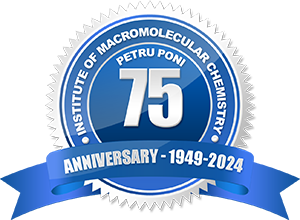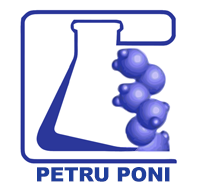The project has as main objective the design of new hybrid polymer/peptide hydrogels for cells cultures applications, an area of growing interest for studying complex biological processes in vitro. The project will provide bioactive scaffolds equipped with biocompatibility and structural features that match the ECM of cells while providing better control over their mechanical properties. The reversibility of gelation can be exploited to release cells from LWMGs-based gels on demand, in a manner that does not lead in cell death. The project will be finalized by realisation and testing of experimental models for new products, multicomponent systems ought to be able to provide gels for cell culture (TRL4).
The specific objectives are connected into a bottom-up approach towards the main objective and involve the following proposed tasks:
- To design and develop different peptide-based supramolecular biomaterials with targeting structural features to undergo gelling processes.
- To develop new strategies to shape and structure supramolecular gels.
- To develop and understand at molecular level the gelling processes between polymer structures and LMWGs in order to obtain gels with well-defined shapes and spatially controlled structures.
- To design and develop multicomponent gels which can offer precise control, but are more complex and must be deeply characterized to understand the interplay between components.
- To apply in depth advanced techniques to fully characterize the gelling processes and the gels from the starting compounds and having in mind the final purpose (scaffold for cell culture).
- To develop systems towards specific application: gels for cells culture.
- To develop the laboratory technology for the new hybrid polymer/peptide hydrogels for multidimensional cultures applications (TRL4).
Stage I/2020
Objective:
Study of the self-assembly phenomenon of peptides in solution as low molecular weight gelators (LMWGs)
Activities:
A1: Study of the self-assembly capacity of peptides in suitable solvents for culture media (water, saline or glucose solution, etc.).
A2: Study of the co-assembly capacity of peptides - preliminary results
A3: Study of the influence of specific factors on the ability of peptides to form supramolecular stuctures- preliminary results
A4: Characterisation of the supramolecular assemblies obtained inside of activities l.1-l.3
Results delivered on stage:
(1) self-assembled peptide-based structures as LMWGs, (2) Library of self-assembled peptides according to different specific factor.
STAGE II / 2021
Objectives:
(i) Study of the phenomenon of self-assembly in solution of peptides as low molar weight crosslinkers (LMMGs) - continuation of studies started in 2020
(ii) Formulation of the concept on the preparation of hybrid materials based on LMMG / PG (gelling polymers)
(iii) Formulation of the concept of preparation of multicomponent gels
Activities:
A1: Study of the ability of peptides co-assembly - continuation of studies started in 2020.
A2: Study of the effect of specific factors on the ability of peptides to form supramolecular structures - continuation of studies started in 2020
A3: Selection of supramolecular assemblies based on LMMGs synthesized in Stage I by correlating the results obtained from the physico-chemical properties
A4: Preparation of hybrid materials
A5: Synthesis of double networks (DN) using a preformed gel
A6: Synthesis of DN by forming "in situ" of the second network
A7: Characterization of the obtained gels
A8: Dissemination
Results delivered on stage:
(1) self-assembled peptide-based structures such as LMMGs ; (2) hybrid gels based on natural polymers and LMMG; (3) DN structures based on a preformed gel; DN structures, in which a network is obtained in situ; multicomponent gels | 







